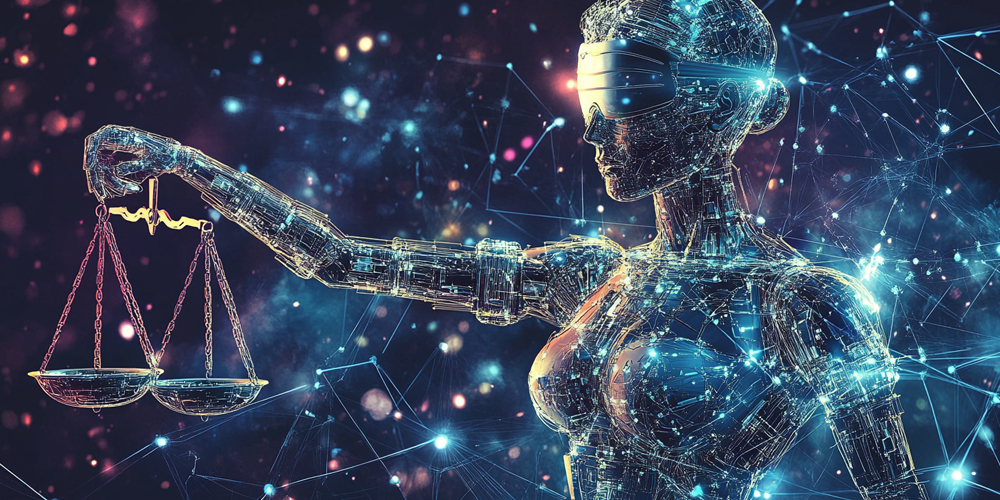AI in Healthcare: Revolutionizing Patient Care and Diagnostics
The integration of artificial intelligence (AI) in healthcare is transforming patient care and diagnostics in unprecedented ways. As technology advances, AI becomes essential in improving outcomes and efficiency in medical practices. This article explores how AI is revolutionizing healthcare, focusing on diagnostics, treatment, patient engagement, and the challenges faced along the way.
Understanding AI in Healthcare
AI refers to systems that can perform tasks typically requiring human intelligence. These tasks include recognizing patterns, making decisions, and learning from experience. In healthcare, AI applications range from diagnostic tools to predictive analytics, enhancing the overall quality of care. By analyzing vast datasets, AI helps healthcare professionals make informed decisions that can significantly impact patient outcomes.
The Importance of Data
Data is at the core of AI’s effectiveness. In healthcare, data can come from various sources, including electronic health records (EHRs), medical imaging, and patient-reported outcomes. The more data AI systems can analyze, the better they can learn and adapt. This leads to improved accuracy in diagnostics and more effective treatment plans.
The Role of AI in Diagnostics
Enhancing Diagnostic Accuracy
AI algorithms can analyze medical images with remarkable accuracy. For instance, deep learning techniques help radiologists detect anomalies in X-rays, MRIs, and CT scans. A study published in Nature revealed that an AI system could match or exceed human performance in diagnosing breast cancer from mammograms. By identifying patterns that may be overlooked by human eyes, AI improves the early detection of diseases.

Speeding Up Diagnosis
Timeliness is critical in healthcare. AI can process vast amounts of data quickly, significantly reducing the time it takes to arrive at a diagnosis. For example, AI systems can analyze lab results and medical histories to provide immediate insights, enabling faster treatment decisions. This speed can be lifesaving in emergencies, where every minute counts.
Reducing Human Error
Human error remains a significant concern in healthcare. AI tools can minimize these errors by providing second opinions or flagging potential issues. For instance, AI can assist in medication management by alerting healthcare providers to potential drug interactions or allergies. By relying on data-driven insights, healthcare professionals can make more informed decisions, enhancing patient safety.
AI in Treatment Planning
Personalized Treatment Plans
AI can analyze patient data to create personalized treatment plans tailored to individual needs. By considering health profiles, genetics, and treatment responses, AI helps doctors optimize therapies. This personalized approach not only improves patient satisfaction but also enhances clinical outcomes. For example, oncology treatments can be tailored based on genetic information, leading to more effective interventions.
Predictive Analytics for Better Outcomes
Predictive analytics powered by AI can identify patients at risk of developing complications. For instance, algorithms can analyze historical data to forecast hospital readmissions. By identifying at-risk patients, healthcare providers can intervene early, reducing hospital stays and improving overall health outcomes. This proactive approach shifts the focus from reactive care to preventive measures.
Drug Discovery and Development
The drug discovery process is notoriously lengthy and expensive, often taking over a decade to bring a new drug to market. AI accelerates this process by analyzing biological data and predicting which compounds are most likely to succeed. Machine learning algorithms can analyze chemical properties and biological interactions to identify promising drug candidates, significantly shortening the timeline for development.
Streamlining Clinical Trials
AI also plays a critical role in optimizing clinical trials. By identifying suitable candidates based on specific criteria, AI can enhance recruitment processes. Furthermore, AI systems can analyze trial data in real-time, allowing for quicker adjustments to protocols and improving the overall efficiency of trials.
Enhancing Patient Engagement
Virtual Health Assistants
AI-driven virtual health assistants provide patients with instant support. These tools can answer questions, schedule appointments, and offer medication reminders. By improving communication, healthcare providers can enhance patient satisfaction and adherence to treatment plans. Virtual assistants can also triage patient inquiries, directing them to the appropriate healthcare professional when necessary.
Telehealth and Remote Monitoring
Telehealth has gained popularity, especially during the COVID-19 pandemic. AI plays a crucial role in remote monitoring, allowing healthcare professionals to track patient progress through wearable devices. These devices collect data on vital signs, activity levels, and more, enabling proactive care. For example, AI can analyze heart rate data to detect arrhythmias, prompting timely interventions.
Patient Education and Empowerment
AI can also support patient education, providing personalized information based on individual health conditions. By empowering patients with knowledge, healthcare providers can enhance self-management and improve health outcomes. AI-driven platforms can deliver educational resources, helping patients understand their conditions and treatment options.
Challenges and Ethical Considerations
Data Privacy Concerns
While AI offers many benefits, it also raises significant concerns about data privacy. Healthcare providers must ensure that patient data is protected and used ethically. With increasing data breaches and cyber threats, establishing clear guidelines and regulations is essential for maintaining patient trust. The use of anonymized data can help mitigate privacy concerns while allowing for valuable insights.
The Need for Human Oversight
AI should augment human expertise, not replace it. While AI can enhance decision-making, human oversight is vital in interpreting results and making final decisions. Healthcare professionals must remain actively involved in patient care, using AI as a tool to support their clinical judgment. Striking a balance between technology and human intervention is crucial for successful integration.

Addressing Bias in AI Systems
Bias in AI algorithms can lead to disparities in healthcare outcomes. If AI systems are trained on data that lacks diversity, they may not perform well for all patient populations. It’s crucial to ensure that AI algorithms are trained on representative datasets to avoid perpetuating existing inequalities in healthcare.
Future Trends in AI and Healthcare
Continuous Learning and Improvement
As AI technology continues to evolve, systems will become increasingly adept at learning from new data. Continuous learning algorithms can adapt to changing healthcare environments and patient needs, ensuring that AI remains relevant and effective. This adaptability is essential for maintaining high standards of care.
Integration with Other Technologies
The future of AI in healthcare will likely involve greater integration with other emerging technologies. For example, combining AI with Internet of Things (IoT) devices can create a more holistic view of patient health. Wearable devices can collect real-time data, which AI can analyze to provide insights into health trends and potential issues.
Expanding Accessibility
AI has the potential to improve access to healthcare services, particularly in underserved areas. Telemedicine powered by AI can connect patients in remote locations with healthcare providers, bridging the gap in access to care. As technology advances, the goal should be to ensure that all patients benefit from AI innovations.
Conclusion
AI is revolutionizing healthcare by enhancing diagnostics, personalizing treatment, and improving patient engagement. Its ability to analyze vast amounts of data quickly and accurately is transforming how healthcare providers deliver care. As technology continues to evolve, its impact on patient care will only grow. By embracing AI, healthcare providers can improve outcomes, enhance efficiency, and ultimately provide better care for patients. The future of healthcare is promising, driven by innovation and the power of artificial intelligence.
Through continued investment in AI technologies and a focus on ethical considerations, the healthcare industry can harness the full potential of AI to create a healthier, more equitable future for all.





